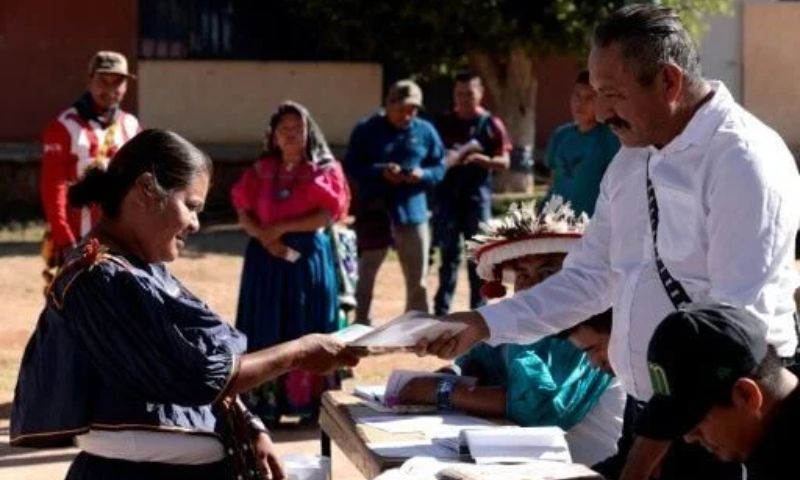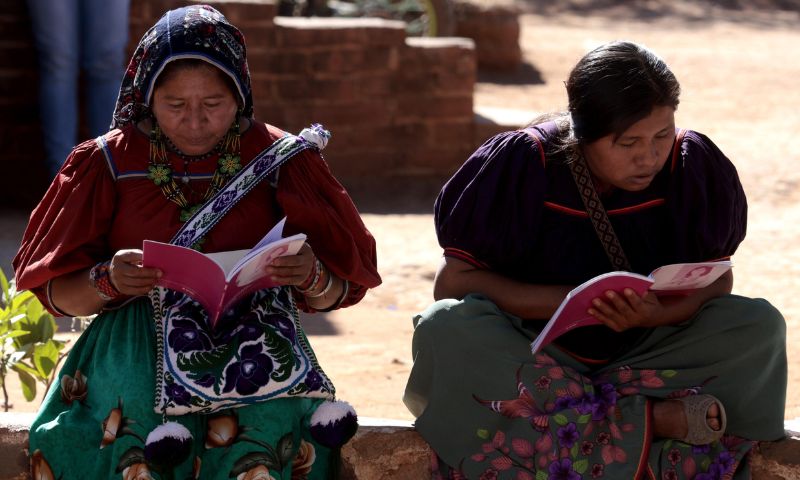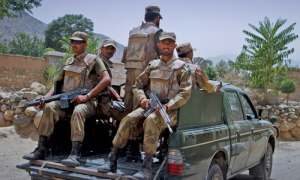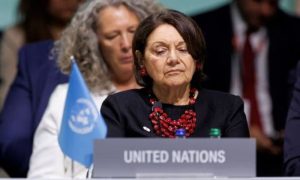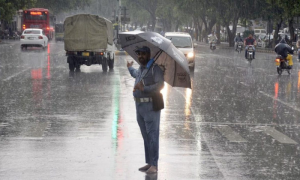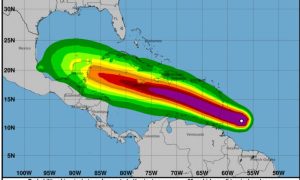TUXPAN, Mexico: As Mexico prepares for its biggest-ever election, rehearsals are underway in indigenous towns in remote, often insecure areas where voting has not always gone smoothly in the past.
Election officials traveled for several hours to the mountains in the western state of Jalisco to train members of the Wixarika community, known for its dazzling art and traditional clothing.
“We’re going to try to learn together what election day will be like,” a National Electoral Institute (INE) representative told local officials in Tuxpan de Bolanos.
Preparation for the June 2 vote was “a little difficult” given the remoteness of the area, said resident Catrina Avila, 50, who has received training in polling station supervision.
“Sometimes the material doesn’t arrive.”
INE representative Roselvet Toledo said that in the past there have been difficulties in holding elections in this area.
The Wixarika, also known as the Huichol, are known for their intricate beadwork and paintings inspired by the vivid, colorful visions they experience when using peyote, a hallucinogenic drug used in their religious rituals.
In the 2021 parliamentary elections, Wixarika voters sometimes walked for several hours to cast their ballots, despite the threat posed by drug traffickers active in the region.
Peak in violence
For security reasons, the electoral institute team returned to the state capital of Guadalajara before dark.
On June 2, Mexicans will vote for a new president, as will members of Congress, several state governors, and countless local officials.
In total, there is competition for more than 20,000 positions.
Violence usually peaks before Mexican elections, and this year was no exception, with around 30 candidates for local office murdered since September.
According to an average of polls compiled by firm Oraculus, the ruling party’s candidate, Claudia Sheinbaum, is the presidential frontrunner with 56 percent of the vote.
READ ALSO: Saudi Foreign Minister Calls Acting Iranian Foreign Minister
Opposition rival Xochitl Galvez, who speaks proudly of her indigenous roots and often wears traditional clothing, is second with 34 percent.
In the official 2020 census, about 23 million people in Mexico were identified as indigenous, out of a total of 126 million at the time.
Another indigenous group, Purepecha in the western state of Michoacan, elected its leaders in a vote in the city of Cheran on Sunday.
Fed up with organized crime, the people of Cheran in 2011 became the first community in Mexico to govern itself according to its customs and traditions.









